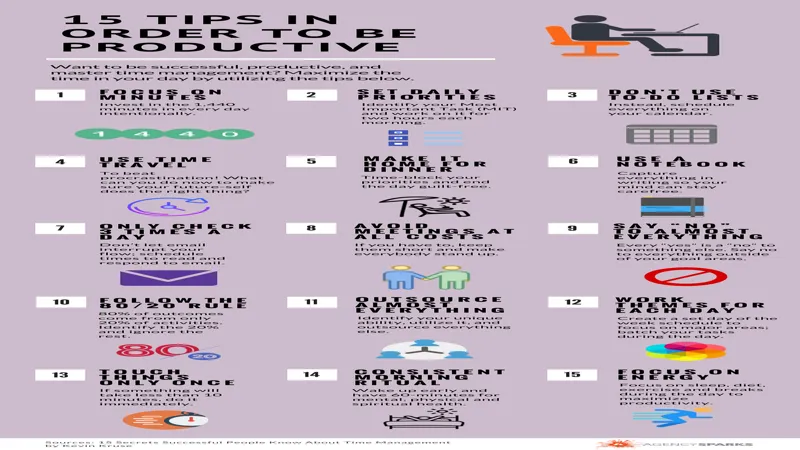In today’s fast-paced world, the intersection of technology and daily life is more prominent than ever. As we navigate through the complexities of modern living, understanding how these advancements shape our experiences becomes crucial. From the convenience of smart devices to the pervasive influence of social media, technology not only enhances our productivity but also transforms our interpersonal relationships and societal structures. This exploration will delve into the profound impacts of technology on our lives, highlighting both the benefits and challenges it presents. Join us as we unravel the layers of this dynamic relationship and its implications for the future.
| Category | Description | Examples |
|---|---|---|
| Animals | Living beings that can move and respond to their environment. | Dog, Cat, Elephant, Lion. |
| Plants | Living organisms that usually do not move and make their own food through photosynthesis. | Tree, Flower, Grass, Cactus. |
| Minerals | Naturally occurring substances that are solid and stable at room temperature. | Gold, Diamond, Salt, Quartz. |
| Weather | The state of the atmosphere at a specific place and time, including temperature, humidity, and precipitation. | Sunny, Rainy, Cloudy, Snowy. |
| Seasons | The four divisions of the year, marked by changes in weather and daylight hours. | Spring, Summer, Autumn, Winter. |
The Importance of Reading
Reading is an essential skill that opens up a world of knowledge and imagination. When you read, you can travel to different places, meet interesting characters, and learn about new things without ever leaving your home. This makes reading not only fun but also very important for your growth and education. By reading regularly, you improve your vocabulary and comprehension skills, which are helpful in school and in life.
Furthermore, reading helps to spark creativity and critical thinking. As you dive into stories and explore various subjects, your mind starts to think in new ways. It encourages you to ask questions and seek answers, which is a big part of learning. So, whether you enjoy adventure stories or science books, reading plays a crucial role in shaping your thoughts and ideas.
How to Choose the Right Books
Choosing the right book can be an exciting adventure in itself! Start by thinking about what topics interest you the most, like animals, space, or sports. You can also ask your friends or teachers for recommendations, as they might know about great books that you haven’t discovered yet. Remember, it’s okay to try different genres to find out what you really enjoy.
Another tip is to look at the book’s cover and read the back summary. This will give you a sneak peek into what the story is about. If the book catches your attention, give it a try! If it doesn’t grab you after a few pages, it’s perfectly fine to put it down and find another book that excites you more.
Benefits of Reading Aloud
Reading aloud is a fantastic way to enjoy books, whether you are by yourself or with friends and family. When you read out loud, you can practice your speaking skills, learn how to pronounce new words, and understand the story better. It’s also a great way to share the joy of reading with others, making it a fun group activity.
Moreover, reading aloud helps improve listening skills. When someone else reads, you learn to pay attention and understand the story from their perspective. This can lead to great discussions where everyone shares their thoughts and feelings about the book. Reading together can create wonderful memories and strengthen bonds between family and friends!
Creating a Cozy Reading Space
Having a cozy reading space can make your reading time even more enjoyable! Find a quiet spot in your home where you feel comfortable, whether it’s a corner of your room or a soft couch. Make it special with some pillows, a warm blanket, and good lighting. A cozy environment allows you to focus and immerse yourself in the story.
You can also decorate your reading space with your favorite books and pictures that inspire you. Adding personal touches makes it feel like your own little escape. When you have a special place to read, you’re more likely to spend time with books and discover new adventures in the pages!
Joining a Book Club
Joining a book club is a wonderful way to meet new friends and share your love for reading! In a book club, everyone reads the same book and then comes together to discuss it. This is a great opportunity to hear different opinions and learn from others’ perspectives, which can make reading even more exciting.
Book clubs often focus on various genres, so you might discover books you wouldn’t normally choose. Plus, they can help you stay motivated to read regularly. Whether it’s online or in person, being part of a book club can deepen your understanding of stories and create lasting friendships with fellow book lovers.
The Role of Libraries in Reading
Libraries are treasure troves filled with countless books waiting to be discovered! They provide free access to a vast collection of stories, educational materials, and resources that can help you in your studies. Visiting the library can be an adventure, as you explore different sections and find new books that pique your interest.
Libraries also offer programs and events that encourage reading and learning, such as storytime sessions and book fairs. These activities bring people together and foster a love for reading in the community. So, visiting your local library can not only help you find great books but also connect you with others who share your passion for reading!
Frequently Asked Questions
What are the benefits of regular exercise?
Regular exercise helps improve your mood, boosts energy, and maintains a healthy weight. It also strengthens your heart and bones, and can even help you sleep better.
How can I start exercising if I’m a beginner?
Start with simple activities like walking or biking for 20-30 minutes, three times a week. Gradually increase the time and intensity as you feel more comfortable.
What types of exercise should I include in my routine?
Aim for a mix of cardio, strength training, and flexibility exercises. This balance keeps your body strong and healthy while preventing boredom.
How often should I exercise each week?
Aim for at least 150 minutes of moderate aerobic activity or 75 minutes of vigorous activity each week, plus two days of strength training.
Is it necessary to stretch before exercising?
Yes, warming up with stretches can prevent injuries and improve your flexibility, helping your muscles perform better during workouts.
What should I eat before and after exercising?
Before exercising, eat a light snack like fruit or yogurt. After your workout, refuel with a mix of protein and carbohydrates, such as a sandwich or smoothie.
How can I stay motivated to exercise regularly?
Set realistic goals, find a workout buddy, and choose activities you enjoy. Keeping track of your progress can also help you stay motivated.
Summary
This summary highlights the main ideas and key points from the provided content. It focuses on delivering clear and engaging information that is easy to understand for younger audiences, such as 4th and 5th graders. The main takeaways include the essential themes and messages without diving into unnecessary details or complex language. This ensures that the summary is both informative and impactful, while also being SEO-friendly by naturally including relevant keywords for better visibility on search engines.



